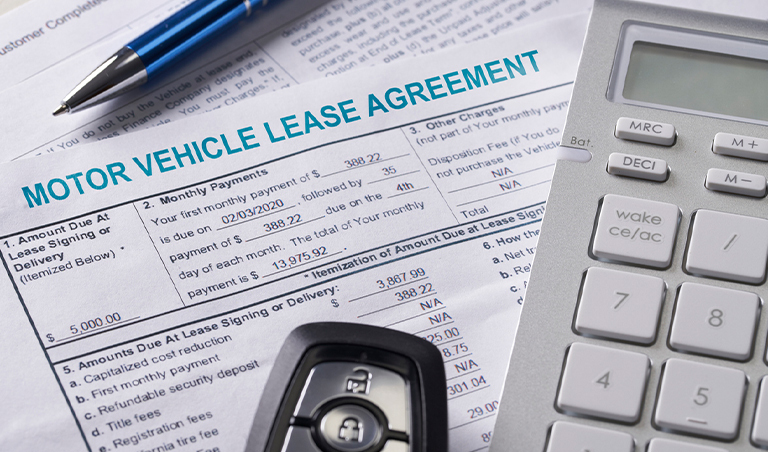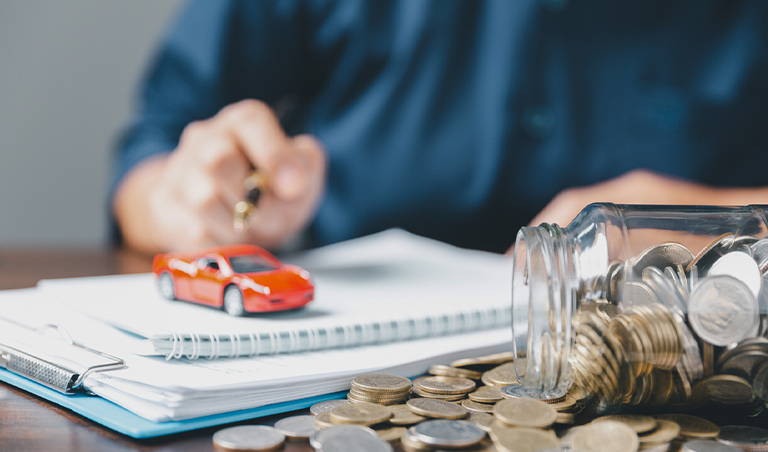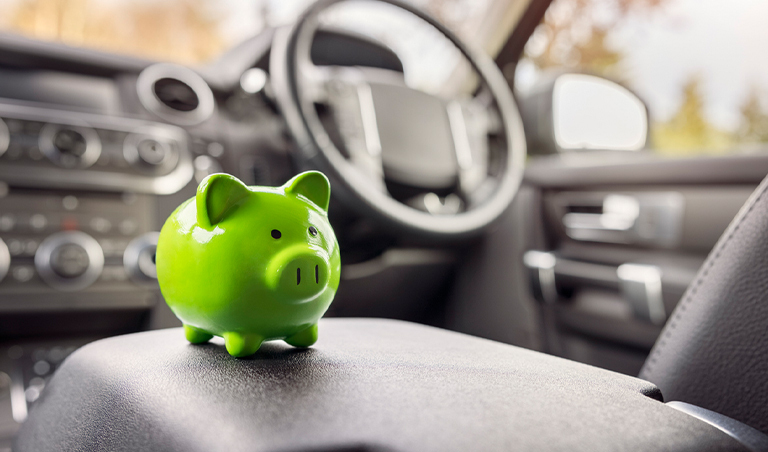Many of us are familiar with the freedom a car can bring. You’re not beholden to public transit or its schedules — you can get wherever you need to go, when you need to get there.
But access to a car — that’s less simple. Cars are expensive to purchase and maintain — even to park. So we decided to make your decision as easy as possible when it comes to the financial feasibility of leasing vs. buying a car.
Read on to understand the pros and cons of both leasing and buying, and which may be right for you and your circumstances.
How Does Leasing a Car Work?

Leasing a car is essentially a long-term rental. You’ll pay a set monthly fee to drive a typically new car for a specified period of time. At this point you can either hand in your vehicle or sign a new lease contract to keep the car (but the terms of the lease deal may change).
Pros and Cons of Leasing a Car
Pros of Leasing a Car
Cons of Leasing a Car
- Lease payments tend to be lower than auto loan payments, so the overall monthly cost is lower.
- Typically you only need to put down a security deposit, not a larger down payment.
- Leases are usually covered by maintenance plans or warranties that help with expensive repairs.
- You can drive a newer, fancier car (with less issues) for significantly less money.
- You won’t have to worry about the car losing value.
- You usually can’t make modifications to your car.
- Your lease agreement will have mileage restrictions (typically 12,000 or 15,000 miles per year) and if you pass the limit, you’ll have to pay penalty fees.
- You’ll pay an acquisition fee to the leasing company ($600–$1,000).
- You’re not building equity each time you make a payment.
- If the vehicle sustains damage above the usual wear-and-tear, you can be charged extra for this.
- Some things like tire replacements are your financial responsibility. Tires can be more expensive for a newer car.
- If you want to break the lease early, you’ll likely have to pay thousands in early termination fees.
How Does Buying a Car Work?

You can either buy a car with cash or finance it with a down payment and a monthly payment that includes interest.
Buying a Car With Cash
When you buy a car with cash, this simply means that you’ve paid the full amount that the vehicle costs and you don’t have to make any monthly payments towards it.

PRO TIP:
If you buy a car with cash, look on the used market first. Cars lose thousands of dollars in value as soon as they leave the lot, so buying an almost new car will save you a ton.
Financing a Car
Financing a car is similar to getting a mortgage on a home — you put up a down payment, receive a loan for the remaining balance, then make monthly payments that 1.) are used to pay interest and fees to the lender 2.) pay down the principal of the loan.
Usually the term for a car loan is 36 to 84 months, with a longer term generally offering lower monthly payments. Once you’ve made all your payments on the car, you own it.
The Pros and Cons of Buying a Car
Pros of Buying a Car
Cons of Buying a Car
- Buying allows you to own equity in a valuable asset.
- There are no mileage limitations when you buy a car.
- You’re not responsible for any excess wear-and-tear charges.
- You have the option to get rid of the vehicle whenever you like, either selling or trading it in for something else.
- You can customize and upgrade your car to your heart’s content.
- You’re using funds that you could potentially otherwise be putting towards an emergency fund or leveraging to build interest in a savings account.
- You need to put at least a down payment down (more if you pay with cash).
- You are responsible for all maintenance costs.
A Note About Financing vs. Paying With Cash
Deciding how to purchase a car is a decision all its own! If you do decide to buy a car, think carefully about which path makes sense for you: financing or paying cash.
Things To Think About With Financing:
- Financing can also allow you to drive a car you may not currently have the full payment for.
- Financing can allow you to leverage some of your funds for everyday expenses or for your savings account (potentially accruing interest). Especially if you are able to get a low-interest loan, your savings might make more money accruing interest than you’re losing through the loan payback.
- If you want to build your credit, making car payments on-time and in full can help you do that. On the other hand, you should know that your interest rate will likely be higher if you have a lower credit score.
- If you default on the auto loan, this can hurt your credit.
- Overall, you’re paying more for the car than you would with cash.
- If you have a longer loan term, the car might not be worth what you paid for it by the time it’s paid off. This is called “being upside down” on a loan.
Things To Think About With a Cash Purchase:
- You don’t have any monthly payments to worry about and you don’t have to qualify for a loan.
- There’s a possibility you’ll get a better deal when you pay with cash.
- If you run into financial trouble later, you won’t default on a loan, and you’ll have an asset you can sell.
- Paying with cash can lend itself to buying an affordable car within your budget — sometimes financing leads to buying something fancier you don’t actually need.
- You can deplete your available funds by paying for a car in full — this money isn’t building compound interest in a savings account.
- Buying a car with cash won’t help to build your credit.
Leasing vs. Buying a Car: Making the Right Decision For You

Finance and investment expert Zach Larsen of Pineapple Money says that in deciding whether to lease or buy a car, “consumers should take into account their lifestyle, driving habits, and financial goals.” He adds that, “ultimately, the decision should be based on individual circumstances and priorities.”
For example, if you …
- are not sure you’ll need a car for very long,
- enjoy driving the hottest new car every few years,
- don’t feel like putting too much money down upfront,
- and/or don’t typically drive a huge number of miles,
then leasing a vehicle could be right for you!
On the other hand, if you …
- want to build equity
- drive a lot,
- need a car long-term,
- and/or enjoy more flexibility about what you can do with that car,
buying might be the more appropriate move.
A lease vs. buy car calculator like this can help you to understand how much money you may end up paying either way.

PRO TIP:
Shop around! Whether you’re buying or leasing, terms tend to be negotiable. And the more shopping around you do (and the more you advertise the fact that you’re shopping around to dealerships), the better deal you’re likely to get.
Final Words
There is no one-size-fits-all answer to the question of whether to lease or buy a car.
As long as you’ve looked at your own situation, plans for the future, and finances, you’ll know that you’re moving forward with a decision as an educated and thoughtful consumer.
